Olive Cooke death: PM tribute to 'incredible woman'
- Published
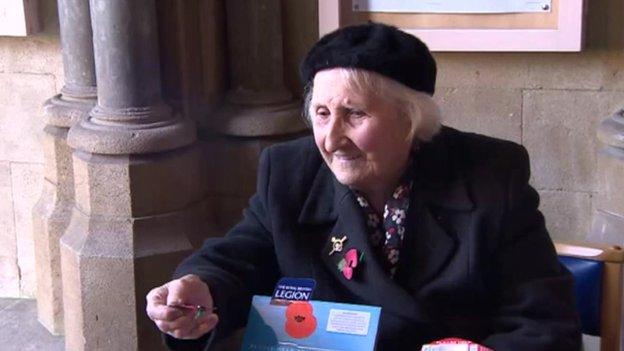
Olive Cooke started raising money for the RBL when she was a teenager
The prime minister has urged fundraising regulators to look at how they could have helped a 92-year-old woman found dead after being "exhausted" by charity requests.
Olive Cooke, one of the UK's longest-serving poppy sellers, was found in the Avon Gorge two days before the 70th anniversary of VE Day.
A friend said she had been "under pressure" but also suffered ill health.
David Cameron said Mrs Cooke, from Bristol, was an "incredible woman".
Fundraising organisations have said they would see what lessons could be learned.
The Institute of Fundraising (IoF) Standards Committee said it will bring together representatives from across the charity sector to review the case.
The mother of three is believed to have sold around 30,000 poppies, having started when she was 16.
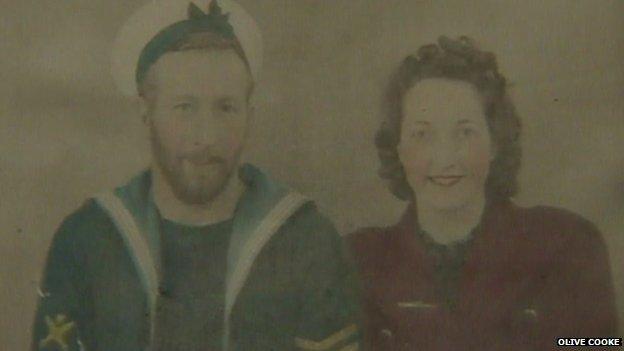
Mrs Cooke said selling poppies took on new meaning after her first husband was killed in action
Her friend Michael Earley said Mrs Cooke was being sent 180 letters a month and was plagued by phone calls.
He told BBC Radio Bristol that while he would not blame her death entirely on charities "pestering" her - she had been "under pressure".
"It was a combination of things, she also had ill-health," he said.
Mrs Cooke's daughter Kathryn told the Bristol Post, external that while there were issues about the number of letters from charities her mother received, "they are not the reason this has happened".
The newspaper also reported that Mrs Cooke, who lost her first husband Leslie Hussey-Yeo in World War Two, had been struggling to sleep.
'Fund-raise in right way'
Mr Cameron, who presented Mrs Cooke with a Points of Light award, external last year for being the UK's longest-serving poppy seller, also said she had "worked tirelessly for the charities she supported".
He said: "I know there is a code that is meant to protect people from feeling pressured by charities and I hope the Fundraising Standards Board will look at whether any more could have been done to prevent this."
Peter Lewis, chief executive of the IoF, said: "Fundraisers know that it is absolutely critical to maintain public trust and confidence in charities.
"An important part of this is to fundraise in the right way and to the highest standards.
"[We] will review any learning following Mrs Cooke's sad death to make sure that our rules and guidance for fundraisers are as robust as they can be."
Mrs Cooke, who lived in Fishponds, had sold poppies for the Royal British Legion (RBL) charity appeal for 76 years and was presented with the Lord Mayor's Medal for her work.
Police said a body was found in Avon Gorge on 6 May, with the death referred to the Avon coroner. An inquest will be opened at a later date.
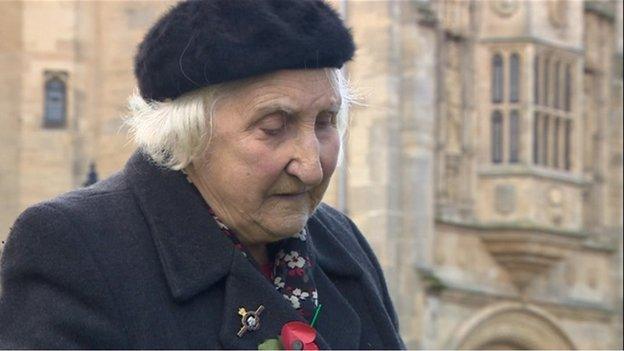
Olive Cooke was a familiar face to many in Bristol, selling poppies from Bristol Cathedral
Conservative MP for Filton and Bradley Stoke Jack Lopresti said he was troubled by the level of calls and letters Mrs Cooke had received and would write to the police and crime commissioner about the case.
Kerry McCarthy, Labour MP for Bristol East, said she would be contacting the Charities Commission about the case, as well as speaking to the lord mayor about how best to mark Mrs Cooke's life.
The commission has said that as fundraising is self-regulatory, it does not fall within their remit, however.
Fundraising Standards Board chief executive Alistair Mclean said: "This is a tragedy and we extend our deepest condolences to Olive's family and loved ones.
"The last thing that charities would want to do is to cause distress to the public when they fundraise.
"There are clear and high standards for charity fundraising in the UK, set out in the Institute of Fundraising's Code of Fundraising Practice, which cover the requirement not to pressurise the public and reinforce data protection requirements."
He also told the BBC that people who did not wish to be contacted by charities could sign up for the Telephone Preference Service, external and the Mail Preference Service, external.
- Published15 May 2015
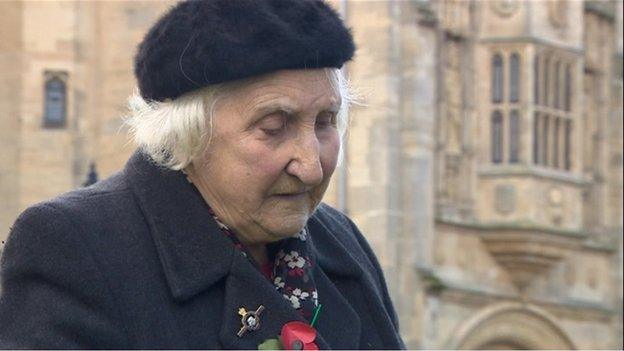
- Published14 May 2015
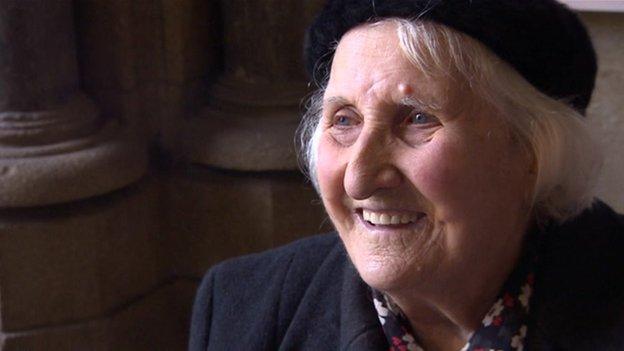
- Published15 December 2014

- Published3 November 2014
